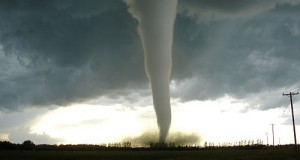|
Listen To The Article
|
Let us imagine that on one dark, stormy night, Facebook goes down … for an hour. You might think that this wouldn’t be much of a big deal, since it’s merely a social network that enables pictures of cats and selfies to go viral.
But when such a crisis happened in late September – the third time this year — the temporary incapacitation of this social media behemoth effectively sent shockwaves throughout the digital ether.
Groundbreaking Solar Generator Delivers 4 Times More Power Than Other Models!
Facebook is just one network and it was only offline for roughly an hour. But consider how many other commonly used apps and websites access Facebook in order to log in and even construct user accounts. The answer is that a whopping 17 million websites use Facebook to connect with their users – or in other words – a number that’s large enough to inflict economic damage if it’s down long enough.
So this somewhat laughable problem just became quite a bit more serious. Thankfully, that was only one social media site. But what would it take for all the web’s dominos to topple and crash simultaneously?
Defining What ‘Crash’ Means
Before we begin parsing out this cyber threat of global proportions, let’s first talk about what I mean by the word “crash.” When I say that the Internet could crash, I’m talking about a complete and total blackout or that of a large enough network region to cause mass destabilization in communication and commerce. There are two possible levels of severity in this type of scenario.
- The first level would concern a situation in which an entire hemisphere is no longer able to connect server-to-server. This failure would wipe out all fundamental utilities and primary, continental Internet data highways.
- In the second (and even worse scenario), every person in the world attempting to access any site on the Internet would receive nothing more than an error message.
Can such unthinkable scenarios occur?
Unfortunately, yes. They are possible and even imminent if steps are not taken to prevent them. The following are but a few high-probability catalysts, which could trigger this massively disruptive digital disaster.
Electromagnetic Pulse Weapon
How do you stop a million-ton moving train?
Easy. Remove the tracks. Sure, the wreckage afterward won’t be pretty, but the train in question is no longer in motion.
To its core, this is what an electromagnetic pulse weapon (EMP) could do to the Internet. However, the EMP would need an extremely wide radius of effect in the thousands of miles, since the web is much like a self-healing and adaptive organism. Nationwide connection speeds might become noticeably slower if a ground-based EMP were detonated. However just because one regional network goes down doesn’t mean that this data can’t traverse other nodes within the larger, continental network.
But then if a foreign enemy decided to detonate a nuclear warhead at an extremely high altitude over Kansas, then the resulting electromagnetic shockwave would wipe out anything remotely connected to the power grid in its path. The affected utilities would include all servers within that EMP’s radius, and thus, all US Internet infrastructure. Countless major nodes would be concentrated within this radius (including 10 percent of international data connections via orbiting satellites, which would then essentially be rendered into orbiting space junk).
Story continues below video:
This particular level-one scenario might not necessarily crash the entire Internet, but it would certainly have a debilitating effect on global connection speeds and access to any website that was once hosted on a server within the US.
It’s Weather … From Space
An EMP-type energy wave also could be unleashed upon the world from space. If the entire earth were to sustain a direct hit from an X-class solar flare, such as the kind experienced during the Carrington Event, then this too would effectively crash the Internet with global annihilation potential. NASA explains:
“Space weather can produce solar storm electromagnetic fields that induce extreme currents in wires, disrupting power lines, causing wide-spread blackouts and affecting communication cables that support the Internet.”
One reason why this event could inflict a MUCH larger-scale blackout of global proportions, in comparison to that of a high-altitude nuclear detonation, is because the earth itself does not sit still. Due to our planet’s rotation, this energy wave could sweep over the entirety of the earth’s surface like a curtain.
So in the event that this energy curtain sweeps from Beijing to Manhattan, then all those nodes in between are scrap metal.
Cyber Attack
 In 2013, it is believed that several major U.S.-based web companies were attacked by an organized army of Syrian hackers, sympathetic to Bashar al Assad’s regime. Websites of these companies, such as The New York Times, NASDAQ, Twitter and Google, appeared to be their targets. According to Glenn McDonald of Discovery News, these companies “were hit with disruptions and extended outages that sent worrisome ripples through cyberspace. The disruptions were blamed on technical glitches, and possibly hackers, with some reports suggesting a coordinated attack by a pro-Syria cyberterrorist organization.”
In 2013, it is believed that several major U.S.-based web companies were attacked by an organized army of Syrian hackers, sympathetic to Bashar al Assad’s regime. Websites of these companies, such as The New York Times, NASDAQ, Twitter and Google, appeared to be their targets. According to Glenn McDonald of Discovery News, these companies “were hit with disruptions and extended outages that sent worrisome ripples through cyberspace. The disruptions were blamed on technical glitches, and possibly hackers, with some reports suggesting a coordinated attack by a pro-Syria cyberterrorist organization.”
There are two peculiarly sobering ramifications to this 2013 cyberattack that we need to consider if this were truly the work of Assad’s digital strike team.
- This pro-Syrian group of hackers was being funded by a beaten and broken Middle Eastern regime and likely possessed limited resources in comparison to a government with the capability to wage a conventional war, such as North Korea.
- It took several months for penetration analysts to determine the source of these attacks, meaning that if a cyberattack were more effectively coordinated and funded, then the total destabilization of the Internet could occur without warning or recognition of a threat.
The point is, if Asad’s people can take on Google, then Putin’s people could theoretically take on the entire Internet, shut it down, and then stroll away whistling nonchalantly down the sidewalk.
Kill Switch
There’s another major reason why we can say (with an uncomfortably high level of certainty) that widespread Internet access can, in fact, be cut off by a government. It’s due to the fact that governments have openly discussed their own capability to do just that. In June 2010, a proposed bill almost gave the Oval Office powers to throw the “kill switch” in the event of a national crisis, according to CNN. The bill, known as the “Protecting Cyberspace as a National Asset Act” (PCNAA), sought to give the President “emergency authority to shut down private sector or government networks in the event of a cyberattack capable of causing massive damage or loss of life.”
If a government claims that it can execute an operation that’s large enough to shut down its population’s access to the Internet, then this type of digital invasion is theoretically possible for a foreign military to execute against the U.S. Once the invading hackers can overpower the enemy’s cyber defenses, then they can throw the kill switch themselves – doing far more damage than any conventional army ever could.
If the Cable Were Cut
According to the above CNN article, some analysts also have pinned an instance of Internet outage to a benevolently oblivious ship that was merely dragging its anchor on the ocean floor. It was thought that the ship had severed a major deep sea data cable by doing so. This story was proven wrong, however. To this day no one seems to know who or what cut that cable. This also presents us with yet another HUGE vulnerability.
In this case, even a moderately decent naval fleet wouldn’t actually need to go toe-to-toe with our aircraft carriers to wage war against the U.S. In reality, if their commander merely wants to disrupt the global economy, then that fleet simply needs to drag their anchors along the ocean floor, perhaps?
Tyranny’s Info Vacuum
Since these vulnerabilities exist, a government could easily take an axe to its own data highways and hubs. Until then, any takeover attempt by some subversive tyrannical entity would show up on Twitter before the first political dissenter could give a good, hearty belly laugh when black ski masks show up at the door.
That’s why tyranny can only survive in an information vacuum.
And that’s definitely one feature, which is NOT supported by a Flash plugin.
What would America be like without Internet? Share your thoughts in the section below:
Are You Ready For Blackouts When A Solar Storm Hits Earth? Read More Here.
 Off The Grid News Better Ideas For Off The Grid Living
Off The Grid News Better Ideas For Off The Grid Living




